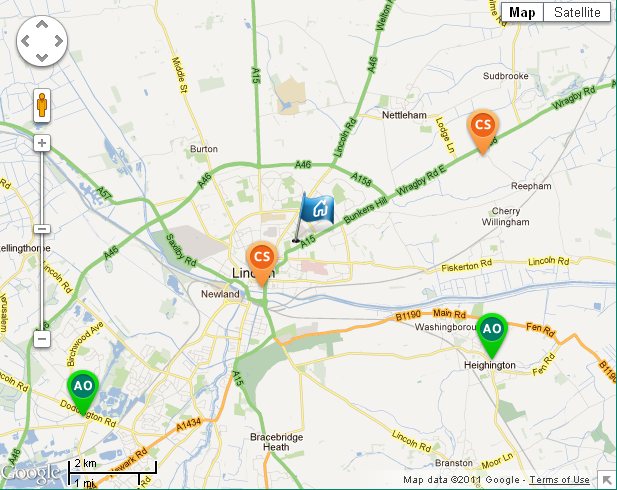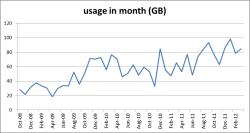
Rural broadband roll out schedule slips
The National Audit Office Last Week spilled the beans that the rural broadband roll out schedule for the BDUK funded superfast broadband project was going to slip 2 years to 2017.
This is not good news. It’s not good news for the rural communities that desperately need faster internet access and it’s not good news for the government which has repeatedly reaffirmed its commitment that the UK would have the “best superfast broadband network in Europe by 2015”.
For those of us involved with this BDUK rollout it has been clear for some time that a 2015 completion was not achievable. Lincolnshire, which was one of the earlier counties to place its contract with BT already has a delivery completion date that ends in March 2016. Counties that are later in the contract placement cycle should expect to see 2017 on their schedules.
The slippages look to me to be down to a combination of red tape and resource. Red tape everywhere you look at it and resource constraints at BT. I’m told that Lincolnshire’s BDUK contract with BT slipped by 3 months as it got close to placement because BT couldn’t assign enough staff to the project (this could quite possibly have been because the delays caused by the red tape had knock on effects from elsewhere in the rollout pipeline).
The other comment made by the NAO relates to the fact that BT’s contribution to the pot would appear to currently be only 23% of the total as opposed to the matched investment that was trumpeted before this project started. Both BT and DCMS have vociferously denied that BT will come up short saying that not all of the projects have been committed to yet.
My own sources tell me that BT has seen a lower take up of superfast broadband in Cornwall than it had planned. This has allegedly affected the ROI model and consequently the amount of money that BT deems sensible to throw into the pot for subsequent rural rollouts.
You do need to look at this in two ways. Firstly the “Cornwall” model only worked in the first place because the EU funding brought the time to recoup BT’s investment down to 13 years (or so I’m told). A lower take up would push this time out further. You might take the view that 13+ years is a very long time to see a return on investment nowadays. However you might also think that this is a long term infrastructure investment for which BT will reap the benefits for decades to come and what difference does a year or two here and there make.
It would also appear from the NAO website that in June 2013, the government revised its target, and now aims to secure delivery of the rural broadband programme by December 2016, as well as 95 per cent superfast coverage by 2017. I missed that one. They kept it very quiet. The last time I heard was that they weren’t officially allowing County Councils to place contracts that extended beyond 1015 because of the need to have spent the funding by then but that they were giving an unofficial wink that it would be ok for them to do so.
I refer you to a post what I wrote1 in November 2011 saying there wasn’t much confidence in the industry that the government target (best superfast broadband in Europe by 2015) was in any way achievable.
The object here is not to gloat. In fact I’m not sure what the object is. Perhaps I’ll finish with some observations.
Firstly nobody should underestimate the importance of the UK having a fantastic broadband network. The competitiveness of UK PLC in the 21st century depends on it. This applies to both rural and urban areas. I’m pretty certain that the political classes understand this.
The red tape associated with dealing with any public source of funding is very thick and difficult to cut through. It is so in order to protect the hard earned (and seemingly easily taken from us) money that we hand over to the taxman from being ill spent.
Governments and the permanent administrative staff who toil on our behalf do not have a good track record in spending this money wisely when major projects are concerned. Who expects the HS2 high speed rail project to come in on budget? Certainly not the Mayor of London.
I don’t have the answer when it comes to red tape.
It has seemed for some time now that what is being done with the BDUK rollout is handing back a monopoly to BT. Realistically there is no one else in the game. Does it matter as long as the network gets rolled out? Some of this is down to the environment established by BDUK. Again we have to remember that the government does have a duty of care to ensure that the cash is wisely spent. Part of this is ensuring that critical national infrastructure, as is the broadband network, is in safe hands. In this case “safe hands” has been interpreted to mean “big network operator” which seems therefore to have locked everyone but BT out of the game.
It may well be that the economics of the countryside mean there is only room for one infrastructure supplier. There is healthy competition between BT and Virgin in more populated areas. There is now definitely no competition in rural areas.
I would like you to consider the following points for discussion:
The government splits off the rural bits of the Openreach network. BT can keep the bits that compete with Virgin.
This network is run in the same way as Network Rail. Perhaps its management could be periodically put out to tender.
The government (us) funds a complete fibre rollout to all communities (Fibre to the Premises or FTTP) covered by this network.
The money for this comes from the scrapping of the HS2 project which sounds as if it could be hugely more expensive than is currently budgeted and in many people’s view a waste of time.
The fact that we were never going to achieve a 2015 date for “the best superfast broadband network in Europe” is almost a moot point. You can understand why politicians like to make statements that puts them in a good light. Although the will was still there I think they realised early on that it was a mistake so make this statement as the focus changed to “what constitutes the best superfast broadband network” together with some b”!!5&*t about putting together a scorecard to measure it. I haven’t heard anything about the scorecard in some time.
None of the political bluster really matters. At the end of the day the only sensible objective is for the UK to have a complete fibre to the premises network and to have this sooner rather than later. We can’t use traditional business case benefit methodologies to find out if this makes sense. I’m sure that this is how they worked out the ROI for HS2. Nobody really understands what benefits will accrue from a universal fibre network. This therefore requires a leap of faith on the part of the government and unfortunately this is a risk they are unlikely to take.
I realise that handing part of a private company back to what would effectively be public ownership sounds counter intuitive. People have criticised BT’s costs. Whatever people say about BT’s cost and overhead base it is difficult to imagine a scenario where a publicly owned company without a profit motive would do better. BT does actually maintain that its cost per metre benchmarks very well against similar networks in other countries and I wouldn’t want to argue the point.
It could be a bullet we should bite. Service provision could be provided by BT, Virgin, Timico or any other ISP who cared to do the business. It would just be a matter of buying wholesale bandwidth off the new company and sending out a router. It would provide for a properly competitive market.
Government intervention is the only way this is going to happen and would have the added benefit of consigning the utterly pathetic 2Mbps Universal Service Obligation (or whatever it is called these days) to the recycle bin.
Discuss.
1 Some of my writing has been influenced by the plays of Mr Ernest Wise.

















